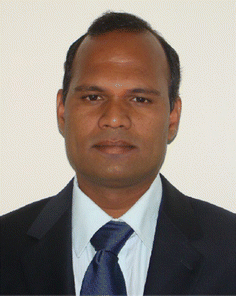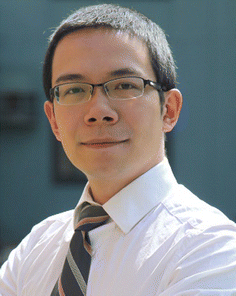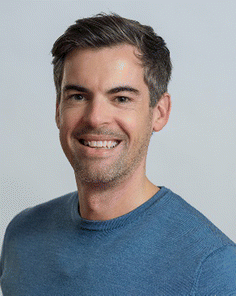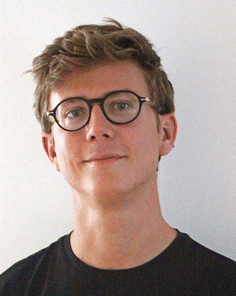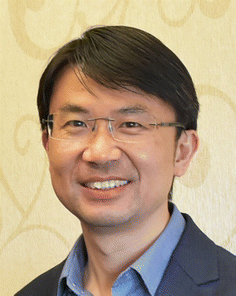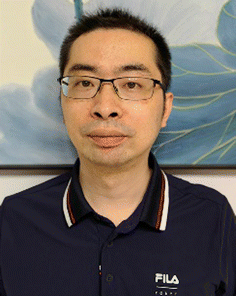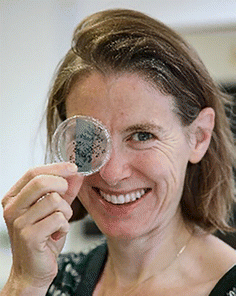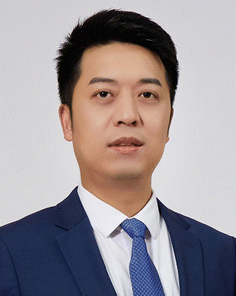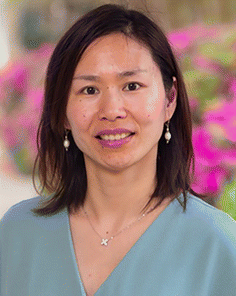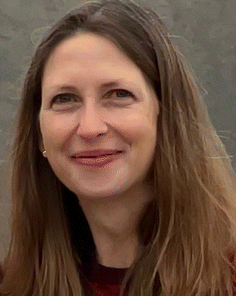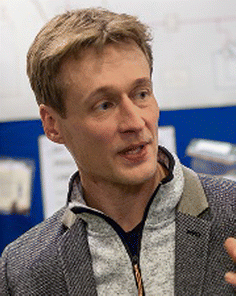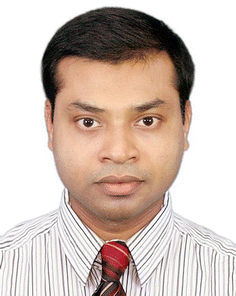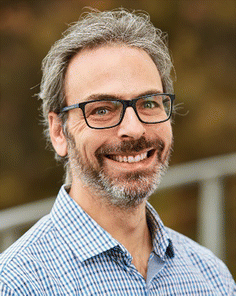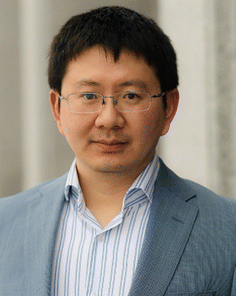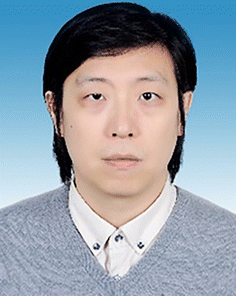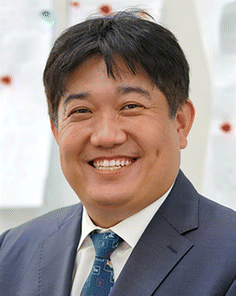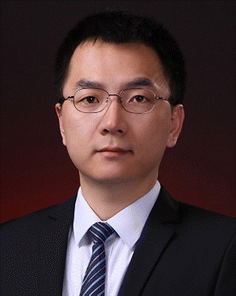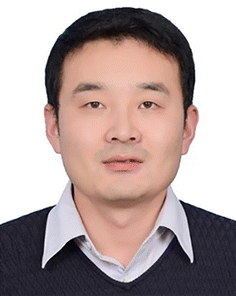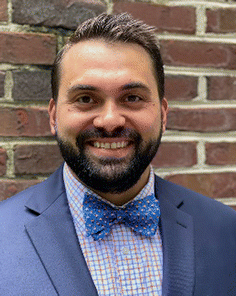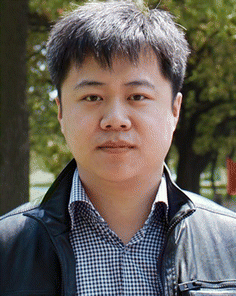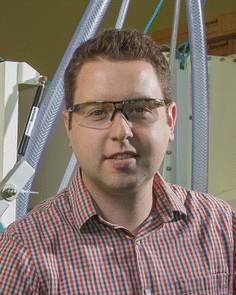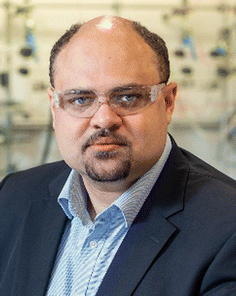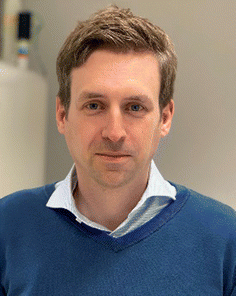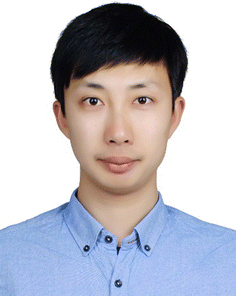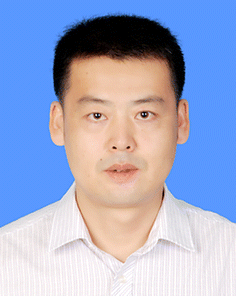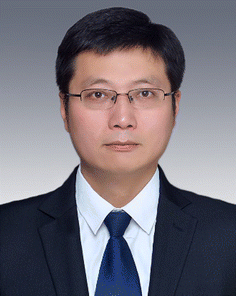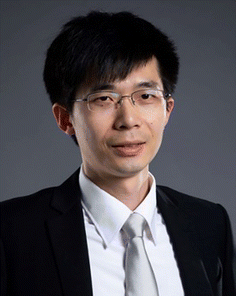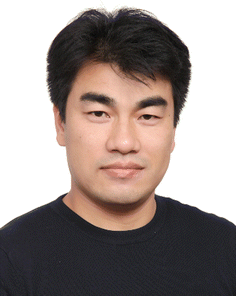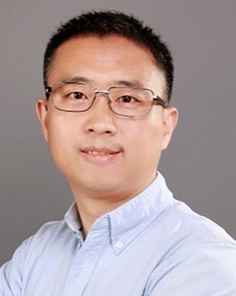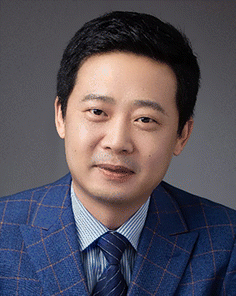Contributors to the Pioneering Investigators collection 2024: Part 2
Chandrakumar Appayee obtained his PhD in organic chemistry (2008) from the Indian Institute of Science (IISc) and did postdoctoral research at the University of Miami (2008–2009), Brooklyn College and the City University of New York (2009–2012), and Columbia University (2012–2013). He started his independent career (2013–2020) as an assistant professor at the Indian Institute of Technology Gandhinagar and he is currently an associate professor (2013–present) at the same institute. His research focuses on the development of novel organocatalysts and catalytic methodologies for the asymmetric synthesis of bioactive molecules and pharmaceutical drugs.
Peng Bai is an associate professor of chemical engineering at the University of Massachusetts Amherst. He obtained his BS degree from Tsinghua University in China and received both his PhD degree and postdoctoral training from the University of Minnesota. His group's research focuses on the development of molecular simulations, and first-principles and AI methods, and their applications in the areas of catalysis, separation, and ion conduction in solid-state batteries.
Stephen Butler is a reader in synthetic supramolecular chemistry at Loughborough University. He grew up in the Midlands and graduated with first-class honours in chemistry from Warwick University. He obtained a PhD at the University of Sydney (2010), synthesising cyclic peptides for anion recognition with Prof. Kate Jolliffe. He conducted postdoctoral research with Profs. Richard Payne (Sydney) and David Parker FRS (Durham). Stephen has been awarded a Ramsay Memorial Fellowship (2014), the Thieme Chemistry Award (2021), and the RSC Bob Hay Lectureship (2023). He leads a group developing macrocyclic lanthanide probes for selective anion recognition, conjugation with biomolecules, and signalling biochemical events in living cells.
Clément Camp is a CNRS researcher in Villeurbanne (France). He graduated in 2010 from the École Normale Supérieure de Lyon (France) and received his PhD in 2013 from the University of Grenoble (France), under the supervision of Dr Marinella Mazzanti. After postdoctoral training with Prof. John Arnold’s group at the University of California, Berkeley (USA), he started his independent career, focusing on surface organometallic chemistry and cooperative effects in catalysis. Clément earned an ERC Starting Grant in 2021, the CNRS bronze medal in 2022 and the French Chemical Society DCC Young Chemist prize in 2023.
Mingji Dai received his BS degree from Peking University in 2002 under the guidance of Professors Zhen Yang and Jiahua Chen. In 2004, he went to Columbia University and got his PhD in 2009 under the guidance of Professor Samuel J. Danishefsky. He then joined Professor Stuart L. Schreiber's lab at Harvard University and the Broad Institute as a postdoctoral fellow. In 2012, he began his independent career at Purdue University and was promoted to associate professor in 2018 and full professor in 2020. In 2022, he was recruited to Emory University as the Asa Griggs Candler Professor of Chemistry. His research focuses on natural product total synthesis, synthetic methodology development and medicinal chemistry.
Shengyi Dong received his PhD degree from Zhejiang University in 2012. In 2013, he joined Freie Universität Berlin as a Humboldt postdoctoral fellow. Now, he is a full time professor in the College of Chemistry and Chemical Engineering, Hunan University. His research interests are mainly focused on the development of supramolecular adhesives and bulk transparent materials.
Glenna L. Drisko is a CNRS researcher at the Institut de Chimie de la Matière Condensée de Bordeaux (ICMCB), with core interests in (nano)particle synthesis and assembly into 2D and 3D materials. She particularly focuses on (nano)particles with a high refractive index and their interaction with light. Her recent European Research Council-funded project ‘Scatter’ aims to synthesize silicon particles of complex shape and composition for unprecedented light manipulation. She obtained her PhD from The University of Melbourne and was a postdoctoral fellow at the LCMCP (Paris) and the LCC (Toulouse). She is the recipient of a L’Oreal/UNESCO for Women in Science award.
Xuezhi Duan received his PhD degree in chemical engineering from East China University of Science and Technology (ECUST) in 2012. After a two-year stint as a VISTA Scholar at the Norwegian University of Science and Technology from 2013 to 2015, he joined the faculty of the School of Chemical Engineering at ECUST. He is now a full professor and deputy director of the State Key Laboratory of Chemical Engineering. His research interests are mesokinetics-guided catalyst and reactor design for sustainable chemical/material synthesis, green energy development, CO2 capture and utilization, as well as plastics recycling.
Ling Fei received her BS in applied chemistry from Shantou University in 2010 and her PhD in chemical engineering from New Mexico State University in 2014. She served as a postdoctoral researcher in the School of Chemical and Biomolecular Engineering at Cornell University from 2014 to 2016. She is currently an assistant professor in the Department of Chemical Engineering at The University of Louisiana at Lafayette. Her research group focuses on the design, synthesis, and engineering of nanostructured materials and their composites for various applications, including energy storage and conversion, surface coating, and catalysis.
Corinna R. Hess grew up in Chicago, where she also received her bachelor’s degree (University of Chicago). Her PhD project (with Prof. Harry Gray, Caltech) involved electrochemical studies on an amine oxidase. Her postdoctoral studies (University of California, Berkeley & Max Planck Institute for Bioinorganic Chemistry) were likewise in bioinorganic chemistry. She has held positions at Durham University (lecturer) and the Technical University of Munich (assistant professor), and was appointed as a Heisenberg Professor at the University of Regensburg in 2023. Her research centers on the development of electro- and photo-catalysts. The emphasis is on the generation of catalysts for energy and sustainable-chemistry-related processes, including CO2 reduction.
Ulrich Hintermair studied chemistry and chemical engineering in Würzburg and Lyon, finishing his degrees at St Andrews before starting his PhD at RWTH Aachen. After being a Humboldt postdoctoral fellow at Yale, he started his independent career in Bath in 2013 where he is currently a Royal Society URF and associate professor. His research on synthetic organometallic chemistry, homogeneous catalysis and operando spectroscopy has been distinguished with the Willi Keim Prize 2016, the Sir John Meurig Thomas Medal 2016, the Inorganic Reaction Mechanisms Award 2018 and the Jochen Block Prize 2021. He acts as a consultant to industry, a council member of the Dalton Division of the RSC, and an Associate Editor for ACS Omega.
Ranjan Jana received his PhD from IACS under the supervision of Prof. B. C. Ranu. Then he moved to Bar-Ilan University, Israel, for postdoctoral studies with Prof. S. Braverman. Subsequently, he joined the Tunge group at the University of Kansas and the Sigman group at the University of Utah. He is a Sr. Principle Scientist at the CSIR-Indian Institute of Chemical Biology. His research interests are tandem C–H activation, alkene difunctionalization, decarboxylative cross-couplings and photoredox catalysis. He has received a Ramanujan fellowship and was elected as a fellow of the West Bengal Academy of Science and Technology.
Amir Karton is a professor of chemistry and associate dean of research at the University of New England. He leads the Quantum Chemistry Lab, pioneering (i) advanced quantum chemical theories for accurate predictions and creation of chemical databases for machine learning applications; and (ii) innovative design of materials for sustainable energy technologies. His groundbreaking research has earned numerous awards, including the Le Fèvre Medal (Australian Academy of Science) and ACS PHYS Division Award (American Chemical Society). Amir has received three esteemed fellowships from the Australian Research Council and serves as an editor for Chemical Physics Letters and the Australian Journal of Chemistry.
Chenfeng Ke is an associate professor in the Department of Chemistry at Washington University in St. Louis. He obtained his BS and PhD degrees from Nankai University in 2004 and 2009, respectively. He worked with Prof. Anthony Davis at the University of Bristol (2009–2011, Newton Fellow) and Sir Fraser Stoddart at Northwestern University (2011–2015). He accepted a faculty position at Dartmouth College in 2015, where he was promoted to associate professor in 2022. He moved to his current role in 2024. His research focuses on developing supramolecular 3D printing materials, organic cages, and hydrogen-bonded crosslinked organic frameworks (HCOFs).
Yu Lan, PhD, is a distinguished professor of Henan Province, and a professor of organic chemistry at Zhengzhou University. Yu Lan completed his PhD in 2008 at Peking University under the supervision of Prof. Yun-Dong Wu. From 2009 to 2012, he worked as a postdoctoral fellow at the University of California, Los Angeles, with Prof. K. N. Houk. His research focuses on the mechanism of transition-metal catalysis and organic catalysis.
Eunsung Lee, an associate professor at Seoul National University, earned his PhD from Stanford (2009) and completed postdoctoral work at Harvard. He began his independent career at POSTECH in 2013, becoming a full professor in 2023 before moving to Seoul National University in 2024. His research focuses on sustainable materials and catalysts, emphasizing organometallic and main-group chemistry. The group develops stable organic radicals for MRI contrast agents and qubit materials, collaborates on metathesis catalysts for cyclic and degradable polymers, and applies MOF and COF chemistry to energy challenges, like gas separation and conductive materials development.
Lu Li studied chemistry at Jilin University (BS, 2006) and received a PhD in inorganic chemistry (2012). After postdoctoral research at McGill University in Canada (2013–2017), he returned to Jilin University as a professor in the State Key Laboratory of Inorganic Synthesis and Preparative Chemistry (2017). His research interests include light-driven activation of inert small molecules (such as CH4, N2, and alkanes), low-carbon conversion technologies and liquid organic hydrogen carriers (LOHC).
Xin-Hao Li completed each of his academic degrees at the College of Chemistry, Jilin University from 1999 to 2009, receiving his PhD degree in 2009 supervised by Professor Jie-Sheng Chen. He then joined Prof. Markus Antonietti's group on an Alexander von Humboldt Research Fellowship for postdoctoral researchers at the Max-Planck Institute of Colloids and Interfaces from 2009 to 2012. Since 2013, he has been a professor in the School of Chemistry and Chemical Engineering, Shanghai Jiao Tong University. His scientific interest is mainly focused on the design and synthesis of electronic interface catalysts (EIC) for green catalysis.
Yongguang Li received his BS degree (2005) and PhD degree (2012) from the College of Chemistry, Jilin University. In 2012, he joined the University of Hong Kong as a postdoctoral fellow. He started his independent career at Sun Yat-sen University in 2014. Now, he is a professor at Hangzhou Normal University. His research interests focus on functional luminescent materials and molecular switches for applications in optical sensors, liquid crystals and anti-counterfeiting.
Charles W. Machan is an associate professor of chemistry at the University of Virginia, USA. He completed his BA in 2008 with majors in chemistry and German at Washington University in St Louis, and his PhD in Chemistry in 2012 under the supervision of Prof. Chad A. Mirkin at Northwestern University. Charles was a postdoctoral research associate in the laboratory of Prof. Clifford P. Kubiak from 2013–2016 at UC San Diego, before beginning his independent career at the University of Virginia in 2016. His research interests are in bioinspired and biomimetic small molecule activation, electrochemistry, and catalysis.
Caleb Martin grew up in Waweig, New Brunswick, Canada. He began his studies in chemistry at Mount Allison University where he obtained his BSc in 2007 working with Glen Briand and Steve Westcott on indium and palladium chemistry. He completed his PhD on group 16 cations at Western University in 2012. Upon completion of postdoctoral studies on carbene chemistry at UC Riverside and UCSD with Guy Bertrand, he began his independent career in 2013 at Baylor University in Waco, Texas. His research team's efforts are focused on the synthesis, reactivity, and properties of unusual boron species.
Charles C. L. McCrory is an associate professor of chemistry and associate professor of macromolecular science and engineering at the University of Michigan. He earned BS degrees in chemistry and mathematics from Indiana University in 2004 and his PhD in chemistry from Stanford University with Professor Christopher Chidsey in 2010. He conducted postdoctoral research with Professor Jonas Peters at Caltech in 2011, and then joined the Joint Center for Artificial Photosynthesis (JCAP) as a Senior Benchmarking Scientist. He joined the faculty of the University of Michigan in 2015 where he focuses on designing electrocatalysts for energy conversion and wastewater remediation.
Fabian Pfrengle received his PhD in 2010 at the Freie Universität Berlin under the guidance of Prof. Hans-Ulrich Reißig. After a 3-year postdoctoral stint with James Paulson at the Scripps Research Institute, La Jolla, he took a position as group leader at the Max Planck Institute of Colloids and Interfaces in Potsdam, and since 2020 he has been a full professor at BOKU University, Vienna. His research interests are in the fields of synthetic carbohydrate chemistry and glycobiology, in particular the application of synthetic oligosaccharides in plant and marine biology.
Wen Sun received his PhD in 2017 from the Max Planck Institute for Polymer Research (Germany). He joined Dalian University of Technology as an associate professor in 2018, where he became a full professor in 2020. His research focuses on developing functional dyes for biomedical applications including bioimaging, fluorescence diagnosis, and phototherapy. Until recently, he has authored more than 50 papers in international journals with a H-index of 51. He has served as an associate editor of Frontiers in Chemistry from 2021.
Zhipeng Sun is a distinguished professor at the Guangdong University of Technology and Vice Dean of the School of Materials and Energy. He obtained his PhD degree at Nanjing University of Aeronautics and Astronautics in 2010. He then held appointments at various universities, including the National University of Singapore, Nanyang Technological University, and Xinjiang University. His current research focuses on energy storage materials and catalysts.
Feng Wang obtained his PhD at Zhejiang University in 2009 under the guidance of Professor Feihe Huang. From 2009 to 2011, he held a postdoctoral position with Professor E. W. (Bert) Meijer at the Eindhoven University of Technology in the Netherlands. He then joined the University of Science and Technology of China as an associate professor and was promoted to full professor in 2016. His research interests focus on supramolecular polymeric materials for optoelectronic and biomedical applications. He was awarded the NSFC Excellent Young Scientists Fund in 2019 and the CCS Young Innovative Academic Lectureship Award in Supramolecular Chemistry in 2023.
Jianhui Wang is the group leader of Westlake Energy Storage Lab (WESL) at Westlake University, aiming at development of next-generation rechargeable batteries and fuel cells. He received his BS from Zhejiang University (2006) and his PhD through a joint training program from Zhejiang University, National University of Singapore, and Dalian Institute of Chemical Physics, Chinese Academy of Sciences (2006–2011). After one year as a postdoc at Kyushu University, he joined The University of Tokyo in 2013 and served successively as a project researcher, JSPS Fellow and chief researcher. He was named an IUMRS Frontier Materials Young Scientist in 2022.
Professor Qiang Wang received a BSc and MSc from the Harbin Institute of Technology in China, and a PhD (2009) from POSTECH in South Korea. He worked as research fellow in ICES under A*STAR (2009–2011), Singapore, and as a postdoctoral associate at the University of Oxford (2011–2012). Since 2012, he has held a full professor position in the College of Environmental Science and Engineering, Beijing Forestry University. His research interests include environmental catalysis, and CO2 capture and utilization. He has published ∼300 journal papers (H-index 70, >22![[thin space (1/6-em)]](https://www.rsc.org/images/entities/char_2009.gif) 000 citations). He serves in editorial roles for J. Energy Chem., J. CO2 Util., and J. Environ. Sci.
000 citations). He serves in editorial roles for J. Energy Chem., J. CO2 Util., and J. Environ. Sci.
Dr Jiangtao Xu is an associate professor in the School of Chemical Engineering, UNSW Sydney. His research group in the Centre for Advanced Macromolecular Design (CAMD) and Australian Centre for NanoMedicine (ACN) has focuses on green and precision polymer synthesis and polymer hydrogels. Dr Xu received his BS and PhD degrees in polymer science from Fudan University. He was awarded an ARC Future Fellowship and took a lecturer position in 2017. He was promoted to senior lecturer in 2019 and associate professor in 2022. He has more than 140 peer-reviewed publications in high-impact journals, attracting >12![[thin space (1/6-em)]](https://www.rsc.org/images/entities/char_2009.gif) 000 citations and an H-index of 61.
000 citations and an H-index of 61.
Jintao Zhang earned his PhD from the National University of Singapore (2012). He then completed postdoctoral fellowships under Prof. Chang Ming Li at Nanyang Technological University in Singapore and Prof. Liming Dai at Case Western Reserve University in the USA. In 2015, he began his independent career as a full professor at Shandong University. His research focuses on interface electrochemistry for electrocatalysis, electrochemical energy storage and conversion, including carbon dioxide reduction, halogen-based batteries and metal–air batteries. He was recognized as a Fellow of the International Association of Advanced Materials (2023) and a Fellow of the Royal Society of Chemistry (2024).
| This journal is © The Royal Society of Chemistry 2024 |

